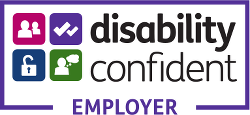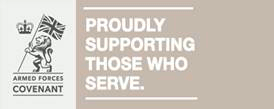Job summary
- Main area
- Psychiatry
- Grade
- NHS Medical & Dental: Specialist Grade
- Contract
- Permanent
- Hours
- Part time - 24 hours per week (6 PAs)
- Job ref
- 186-4735946-VB
- Employer
- Nottinghamshire Healthcare NHS Foundation Trust
- Employer type
- NHS
- Site
- Highbury Hospital
- Town
- Nottingham
- Salary
- £83,945 - £95,275 per annum
- Salary period
- Yearly
- Closing
- 05/07/2024 23:59
Employer heading

Specialist Doctor in General Adult Psychiatry - City Central LMHT
NHS Medical & Dental: Specialist Grade
Job overview
Applications are invited for a less than full time Specialty Doctor in Adult Mental Health, at the City Central LMHT based at Highbury Hospital, Nottingham.
Main duties of the job
The post holder will
- Attend team meetings, support triage function of team, support duty workers with urgent clinical situations, undertake new patient reviews, including completing formulations and risk assessments, be available for clinical discussions with team members about patients on the team caseload, hold follow up reviews of patients on the postholders case load.
- Provide clinical leadership of team, engagement with MDT and RAMM
- Provide assessments of new patients and formulate treatment/care
- Support the triage functions of the team if requested
- To use evidence-based treatment and follow policy/guidelines
- To work collaboratively and liaise with other teams in the Trust
- To use the Mental Health Act, as appropriate
- To work in a collaborative, multi-disciplinary, multi-agency and partnership
- To provide medical treatment within a model of multi-disciplinary care
- Attending weekly clinical team meetings and performing medical duties that are decisions of that meeting
- Compiling a patient’s history from a number of sources and preparing case summaries and discharge summaries where required.
- Preparing reports for Mental Health Review Tribunals and Managers’ Hearings and giving evidence in relation to patients on CTO.
- Liaising with other clinical teams within and outside the Trust
- Liaising with general practitioners and medical specialists with regards to physical health
- Exceptional assessment of patients out of area on rare occasions
Working for our organisation
Nottinghamshire Healthcare provides integrated healthcare services, including mental health, intellectual disability and physical health services. Over 9000 dedicated staff provide these services in a variety of settings, ranging from the community through to acute wards, as well as secure settings. The Trust manages two medium secure units, Arnold Lodge in Leicester and Wathwood Hospital in Rotherham, and the high secure Rampton Hospital near Retford. It also provides healthcare in prisons across the East Midlands. Its budget for 2023/24 is £628.2 million.
The Trust is committed to a sustainable future and works hard to reduce its carbon footprint and environmental impact across all of its many services.
The core local area the Trust covers is Nottingham and Nottinghamshire with a combined population of around 1.1 million people.
Detailed job description and main responsibilities
The main focus of the role will include the assessment of new patients referred to the service including students from the universities (Trent and Nottingham University), GP liaison work, management of patients within the recovery model, Mental Health Act work (Section 12) when required, day on-call duty rota (this will be based on a pro rata and on average 3 to 4 times a month for emergency work only, it is factored into the sessions and does not impact on work as it is a last resort cover), cover for colleagues when on leave and working within the multidisciplinary team supporting other members of the team. There will be an emphasis on providing leadership and consultancy to the team.
Person specification
Qualifications
Essential criteria
- MB BS or equivalent medical qualification.
Desirable criteria
- Qualification or higher degree in medical education, clinical research or management.
- MRCPsych OR MRCPsych equivalent approved by the Royal College of Psychiatrists
- Additional clinical qualifications
Eligibility
Essential criteria
- Fully registered with the GMC with a licence to practise at the time of appointment.
- Approved under S12 MHA
- Completed a minimum of 12 years’ medical work (either continuous period or in aggregate) since obtaining a primary medical qualification
- A minimum of six years should have been in a relevant specialty in the Specialty Doctor and/or closed SAS grades. Equivalent years’ experience in a relevant specialty from other medical grades including from overseas will also be accepted.
Desirable criteria
- In good standing with GMC with respect to warning and conditions on practice
- Inclusion on the Specialist Register with the GMC at the time of appointment (or intention to undertake via CESR)
- Approved Clinician (AC) status/approval and be on the AC register or the ability to obtain within 6 months in post.
Transport
Essential criteria
- Holds and will use valid UK driving licence OR provides evidence of proposed alternative.
Professional Values and Behaviours, Skills and Knowledge
Essential criteria
- Practises with the professional values and behaviours expected of all doctors as set out in GMC Good Medical Practice and the Generic Professional Capabilities Framework (or equivalent for dentists).
- Demonstrates the underpinning subject-specific competences i.e. knowledge, skills and behaviours relevant to the role setting and scope.
- Clinically evaluates and manages a patient, formulating a prioritised differential diagnosis, initiating an appropriate management plan, and reviewing and adjusting this depending on the outcomes of treatment.
- Manages the difficulties of dealing with complexity and uncertainty in the care of patients; employing expertise and clinical decision-making skills of a senior and independent/ autonomous practitioner
- Critically reflects on own competence, understands own limits, and seeks help when required
- Communicates effectively and is able to share decision-making with patients, relatives and carers; treats patients as individuals, promoting a person- centred approach to their care, including self- management.
- Respects patients’ dignity ensures confidentiality and appropriate communication where potentially difficult or where barriers exist, e.g. using interpreters and making adjustments for patients with communication difficulties
- Demonstrates key generic clinical skills around the areas of consent; ensuring humane interventions, prescribing medicines safely and using medical devices safely.
- Adheres to professional requirements, participating in annual appraisal, job planning and reviews of performance and progression.
- Awareness of legal responsibilities relevant to the role, such as around mental capacity and deprivation of liberty; data protection; equality and diversity. The understanding and utilisation of the legal framework provided by both the MHA 1983 and the MCA 2005 is essential. A Specialist Grade postholder in psychiatry would need as a minimum to be section 12(2) MHA 1983 approved, if not have Approved Clinician (AC) status/approval and be on the AC register. (NB: MHA 1983 only pertains to England and Wales. Equivalent in Northern Ireland would be the Mental Health (Northern Ireland) Order 1986 and 2016 Mental Capacity Act.)
- Applies basic principles of public health; including population health, promoting health and wellbeing, work, nutrition, exercise, vaccination, and illness prevention, as relevant to their specialty.
Leadership and Teamworking
Essential criteria
- Awareness of their leadership responsibilities as a clinician and demonstrates appropriate leadership behaviour; managing situations that are unfamiliar, complex, or unpredictable and seeking to build collaboration with, and confidence in, others.
- Demonstrates understanding of a range of leadership principles, approaches and techniques so can adapt leadership behaviours to improve engagement and outcomes – appreciates own leadership style and its impact on others.
- Develops effective relationships across teams and contributes to work and success of these teams – promotes and participates in both multidisciplinary and interprofessional team working.
- Critically reflects on decision-making processes and explains those decisions to others in an honest and transparent way.
- Critically appraises performance of self, colleagues or peers and systems to enhance performance and support development.
- Demonstrates ability to challenge others, escalating concerns when necessary.
- Develops practice in response to changing population health need, engaging in horizon scanning for future developments.
Patient Safety and Quality Improvement
Essential criteria
- Takes prompt action where there is an issue with the safety or quality of patient care, raises and escalates concerns, through clinical governance systems, where necessary.
- Applies basic human factors principles and practice at individual, team, organisation and system levels.
- Collaborates with multidisciplinary and interprofessional teams to manage risk and issues across organisations and settings, with respect for and recognition of the roles of other health professionals.
- Advocates for, and contributes to, organisational learning.
- Seeks feedback and involvement from individuals, families, carers, communities and colleagues in safety and quality service improvements reviews.
- Evaluates and audits own and others’ clinical practice and acts on the findings.
- Reflects on personal behaviour and practice, responding to learning opportunities.
- Implements quality improvement methods and repeats quality improvement cycles to refine practice; designing projects and evaluating their impact.
- Engages with relevant stakeholders to develop and implement robust governance systems and systematic documentation processes.
Desirable criteria
- Leads new practice and service redesign in response to feedback, evaluation and need, promoting best practice.
- Critically appraises and synthesises the outcomes of audit, inquiries, critical incidents or complaints and implements appropriate changes.
Safeguarding Vulnerable Groups
Essential criteria
- Recognises and takes responsibility for safeguarding children, young people and adults, using appropriate systems for identifying, sharing information, recording and raising concerns, obtaining advice and taking action.
- Applies appropriate equality and diversity legislation, including disability discrimination requirements, in the context of patient care.
Education and Training
Essential criteria
- Critically assesses own learning needs and ensures a personal development plan reflects both clinical practice and the relevant generic capabilities to lead and develop services.
- Promotes and participates in individual and team learning; supporting the educational needs of individuals and teams for uni-professional, multidisciplinary and interprofessional learning.
- Identifies and creates safe and supportive working and learning environments.
- Can act as a role model, educator, supervisor, coach or mentor for medical and non-medical practitioners.
- Creates effective learning opportunities and provides developmental feedback, both verbally and in writing, to learners and doctors/dentists in training, as required by the role.
- Understands how to raise concerns about the behaviour or performance of any learner who is under their clinical supervision (leadership).
- Takes part in patient education.
Desirable criteria
- Plans and provides effective teaching and training activities as required by the role.
Research and Scholarship
Essential criteria
- Keeps up-to-date with current research and best practice in the individual’s specific area of practice, through appropriate continuing professional development activities and their own independent study and reflection.
- Critically appraises and understands the relevance of the literature, conducting literature searches and reviews; disseminates best practice including from quality improvement projects.
- Locates and uses clinical guidelines appropriately
- Communicates and interprets research evidence in a meaningful way for patients to support shared decision-making.
Desirable criteria
- Works towards identifying the need for further research to strengthen the evidence base or where there are gaps in knowledge, networking with teams within and outside the organisation.
Applicant requirements
You must have appropriate UK professional registration.
This post is subject to the Rehabilitation of Offenders Act 1974 (Exceptions) Order 1975 (Amendment) (England and Wales) Order 2020 and it will be necessary for a submission for Disclosure to be made to the Disclosure and Barring Service.
Documents to download
Further details / informal visits contact
- Name
- Karthik Thangavelu
- Job title
- Clinical Director - AMH
- Email address
- [email protected]
- Telephone number
- 07990667888
List jobs with Nottinghamshire Healthcare NHS Foundation Trust in Medical and Dental or all sectors





